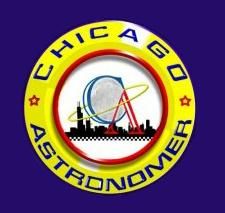Post by Chicago Astronomer - Astro Joe on Mar 23, 2006 22:27:06 GMT -6
Can anything travel faster than the speed of light?
Can anything travel faster than the speed of light? "No," is what Albert Einstein would likely say if he was alive today -- and he would be the man to ask, because scientists have been taking his word for it ever since the early 20th century.
According to Einstein's theory of special relativity, published in 1905, nothing can exceed the speed of light. That speed, explained Einstein, is a fundamental constant of nature: It appears the same to all observers anywhere in space.
The same theory says that objects gain mass as they speed up, and that speeding up requires energy. The more mass, the more energy is required. By the time an object reached the speed of light, Einstein calculated, its mass would be infinite, and so would the amount of energy required to increase its speed. To go beyond the infinite is impossible.
One hundred years of testing have only reinforced what Einstein wrote, said Donald Schneider, professor of astronomy and astrophysics at Penn State. "There is no experiment that has contradicted special relativity. We have accelerated sub-atomic particles to well over 99 per cent of the speed of light, but not equal to or exceeding the speed of light.
"Theoretically, strange things happen when you exceed the speed of light," Schneider added. Time travel, for one thing, and a breakdown in cause and effect. Schneider uses an example of hitting a target with a gun that shoots bullets faster than the speed of light. "Some observers would see the bullet hit the target before they saw the shooter fire the gun," he said. "Since one of the guiding principles of relativity is that all physical laws are the same to all observers, this violation of causality would be a big problem."
Another oddity: tachyons. In 1967, Gerald Feinberg, a physicist at Columbia University, proposed the existence of these faster-than-light particles. In their mirror world above the light-speed barrier, tachyons would require infinite energy to slow down to the speed of light.
Other concepts that have popped up include "wormholes" -- shortcuts through space-time that would permit point-to-point travel faster than light -- and "warp drives," a kind of bubble created in space in which relativity wouldn't apply.
Although they have become staples of science fiction, tachyons, worm holes and warp drives remain speculation, and many physicists dismiss their significance. There is, however, at least one real-world example of superluminal (i.e., faster-than-light) travel. It occurs when light passes through water.
In this dense medium, Schneider explained, light is slowed to three-fourths of its speed in a vacuum. In a nuclear reactor, charged particles flying off the radioactive rods through the water they are submerged in exceed this reduced speed.
Because these particles contain an electric charge, they emit energy, called Cherenkov radiation. Any particles they bump into become radioactive, giving the water a characteristic blue glow.
"It's not at all exotic," Schneider said. "Every time you look at the water in a nuclear reactor, the bluish glow you see is radiation produced by charged particles moving faster than the speed of light in the water."
Still, slowing light down in order to beat it is cheating, Schneider conceded. And although he's not closing his mind to the possibility that relativity will one day be amended, for now, he said, Einstein's theory is the final word.
Full story here: www.physorg.com/news12084.html
=======
I think that we are pompous to think we know all the answers and explanations to the speed of light. It was once strongly and argued that the sound barrier could never be broken, and before that heated arguments said that man could never go past 35 Mph and that he would go mad if he did.
With our limited perception of photons and their speed, I'm sure the theory will dramatically evolve.
Open minds are cool... #idea#







